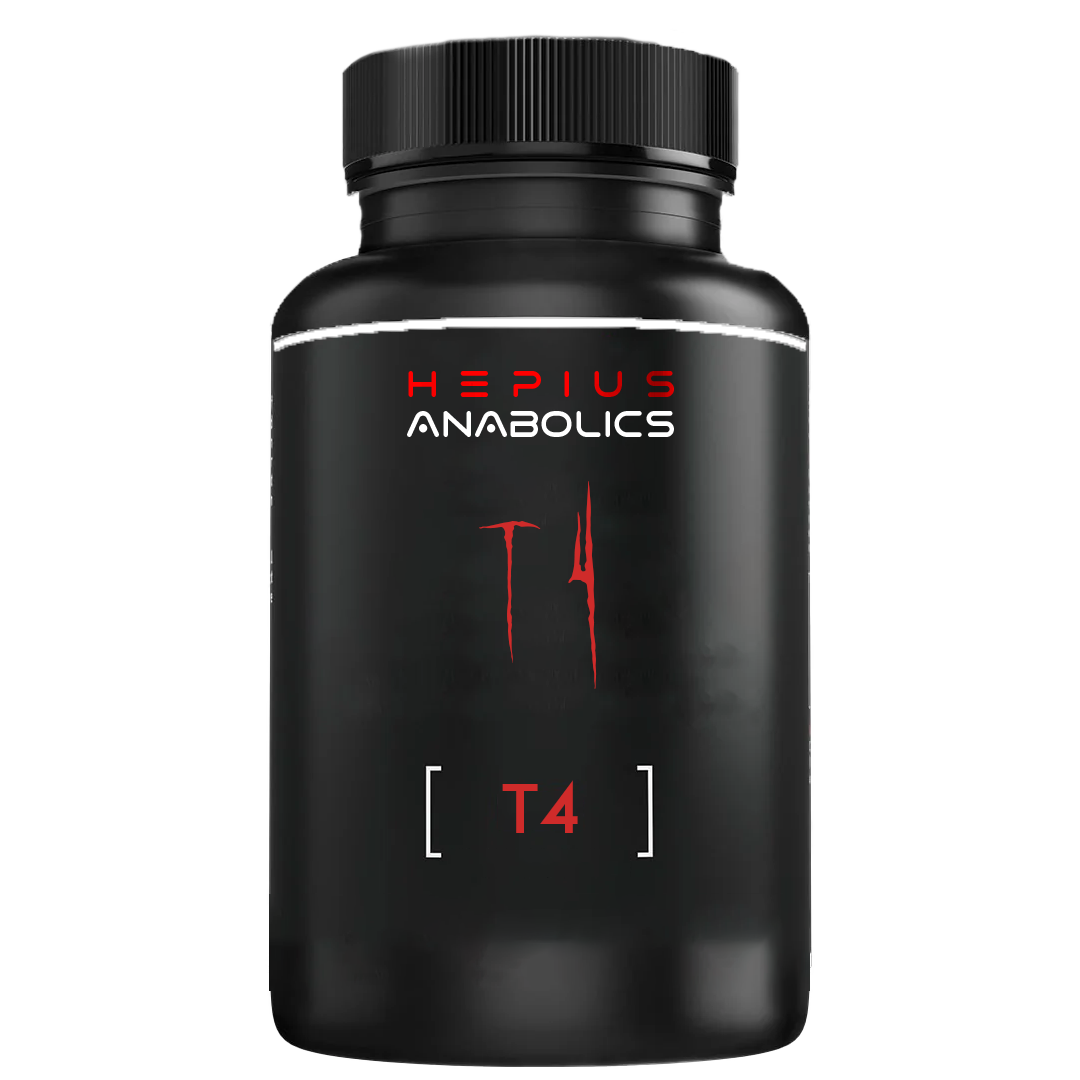Hepius
T4
T4
T4 (Thyroxine) is a synthetic form of the naturally occurring thyroid hormone produced by the thyroid gland. The pharmaceutical name for synthetic T4 is Levothyroxine, and it is commonly prescribed to treat thyroid disorders, such as hypothyroidism (an underactive thyroid).
What is T4?
Thyroid Hormone: T4 is one of the two main hormones produced by the thyroid gland, with the other being T3 (Triiodothyronine). T4 serves as a storage form that is converted into the more active T3 hormone in the body. While T4 itself is not very active, it plays a crucial role in regulating the body's metabolism, energy levels, and overall hormonal balance.
Regulation of Metabolism: T4 helps control how the body uses energy and affects many functions, including heart rate, body temperature, and the metabolic rate.
Medical Uses of T4
1. Hypothyroidism Treatment: Levothyroxine (T4) is prescribed to individuals whose thyroid gland does not produce enough thyroid hormone. It helps restore normal hormone levels, alleviating symptoms like fatigue, weight gain, and depression.
2. Thyroid Hormone Replacement: T4 is used as a hormone replacement therapy in people who have had their thyroid gland removed or in those with thyroid dysfunction.
Dosage and Administration
Individualized Treatment: The dosage of T4 is highly individualized and depends on factors such as age, weight, medical history, and the severity of hypothyroidism. The goal is to normalize thyroid hormone levels and relieve symptoms.
Typical Dosage: Adults usually start with a low dose (e.g., 25 to 50 micrograms per day) and gradually increase based on blood test results and symptoms. The dose may be adjusted every 4 to 6 weeks until thyroid levels are stable.
Administration: T4 is taken orally, typically in the morning on an empty stomach, at least 30 to 60 minutes before breakfast, to ensure proper absorption.
How T4 Works
Hormonal Conversion: Once ingested, T4 is absorbed into the bloodstream and converted into T3 in various tissues throughout the body. T3 is the active hormone that regulates metabolism and energy use.
Benefits
1. Symptom Relief: T4 replacement therapy can relieve symptoms of hypothyroidism, such as fatigue, weight gain, hair loss, and mood disturbances.
2. Metabolic Balance: It helps restore the body's metabolic balance, improving overall energy and well-being.
3. Heart Health: By normalizing thyroid hormone levels, T4 can improve heart function and reduce the risk of cardiovascular complications associated with hypothyroidism.
Potential Side Effects
Overdose Symptoms: Taking too much T4 can lead to symptoms of hyperthyroidism, such as increased heart rate, anxiety, insomnia, sweating, and weight loss.
Allergic Reactions: Rarely, individuals may experience an allergic reaction to the inactive ingredients in T4 medications.
Bone Density: Long-term use of high doses may reduce bone mineral density, increasing the risk of osteoporosis, especially in postmenopausal women.
Heart Risks: High doses can lead to palpitations or other heart-related issues, particularly in older individuals or those with pre-existing heart conditions.
Precautions and Warnings
1. Regular Monitoring: It is essential to have regular blood tests to monitor thyroid hormone levels and adjust the dosage as needed.
2. Pregnancy and Breastfeeding: T4 is safe for use during pregnancy, and thyroid hormone levels should be carefully managed to ensure the health of both the mother and the baby.
3. Drug Interactions: T4 can interact with various medications, such as antacids, iron supplements, calcium supplements, and certain cholesterol-lowering drugs. Always inform your doctor about any other medications you are taking.
T4 Use in Bodybuilding and Weight Loss
Fat Loss: T4 is sometimes used off-label by bodybuilders and fitness enthusiasts to increase metabolism and promote fat loss. However, its effectiveness is generally considered lower than T3 in this context because T4 needs to be converted into T3 to exert its metabolic effects.
Risks: Using T4 for weight loss without a medical reason can disrupt natural thyroid function and lead to long-term health issues, including thyroid hormone imbalance and cardiovascular complications.
Comparison to T3
Potency: T3 is more potent and acts more quickly on metabolism than T4. However, T4 has a longer half-life and provides a more stable and sustained release of thyroid hormone.
Conversion: The body naturally converts T4 into T3 as needed, allowing for a more balanced and controlled effect on metabolism.
Legal Status
Prescription Medication: T4 is a prescription medication and should only be used under the guidance of a healthcare professional. Using it without medical supervision is not recommended and can have serious health consequences.
Conclusion
T4 (Levothyroxine) is a crucial hormone replacement therapy for individuals with hypothyroidism. While it can aid in weight loss and metabolism enhancement, its off-label use for these purposes is risky and can have long-term adverse effects on thyroid function and overall health. Always consult a healthcare provider before using T4, and ensure that usage is medically appropriate and monitored.
Serving/Container
Serving/Container
100 tabs


